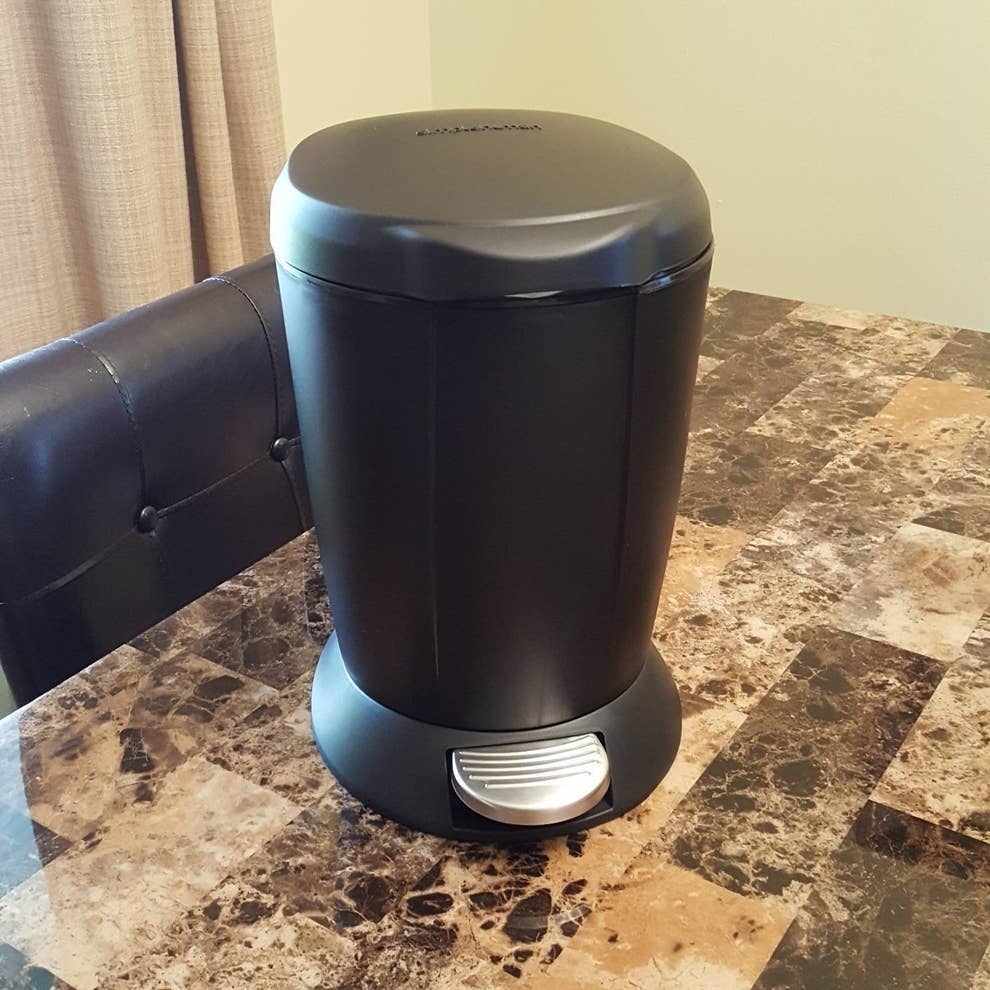35+ Overlooked Areas In The Home That Should Be Cleaned Now
In the blink of an eye, we’ve reached the end of 2021. To ring in the new year, most of us often clean our houses so that we can have a “fresh start” for the upcoming year. Cleaning can be a rather exhausting job, especially if you have a big house. After a long day of cleaning your home, you might be feeling rather accomplished and proud of yourself for the clean environment you just created. However, believe it or not, there are actually a few spots that you might’ve neglected during your cleaning spree, no matter how hard you scrubbed. These are the spots you wouldn’t think to clean but are indeed filthy and germ-prone. We’ve compiled a list of frequently overlooked areas in your home that you should clean but are often neglected. Get ready to roll up your sleeves and get cleaning.
Walls
Walls are undeniably the most neglected thing in most households that should be cleaned but often aren’t. Seriously, when was the last time you heard someone clean their walls? Walls shouldn’t be left uncleaned, and here’s how you can do it easily.
With a normal floor mop, attach a dry cloth to the rectangle end and press it along your dusty walls; this way, you’ll be able to clean all the dust, cobwebs, and dirt that your walls have collected over the years without using ladders.

Outdoor Lights
Furthermore, outdoors lights are often left uncleaned too. You might think since they’re situated outdoors, there’s no point in cleaning them if they’re going to get dirty again, right? Actually, you should clean and inspect your outdoor lights at least once a year.
You should be checking for pest nests. The heat the light gives off is the perfect environment for mice and other rodents to build nests in. If you realize that there are indeed pest nests, you should clean them out immediately.
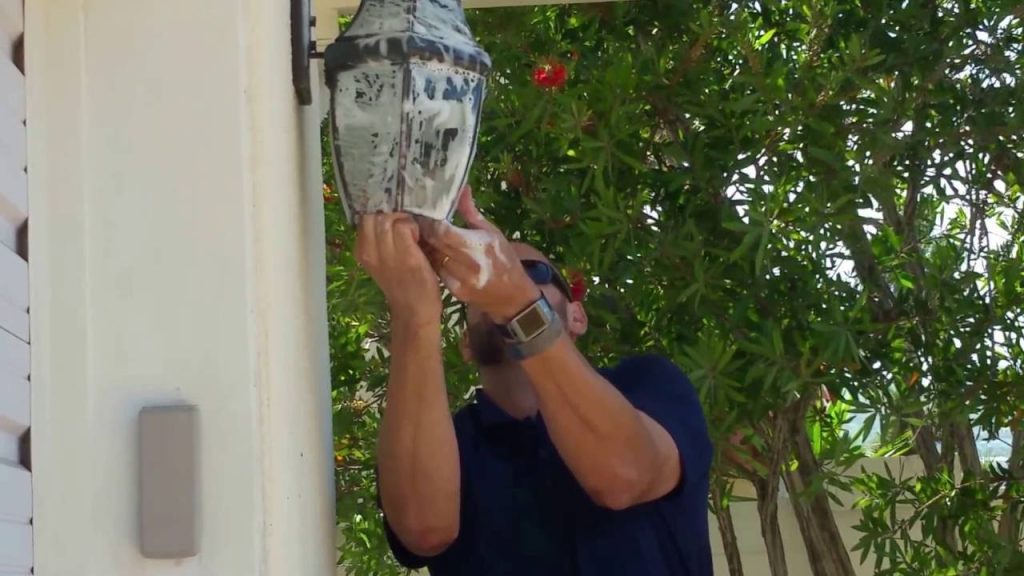
Decks
Similar to outdoor lights, decks are exposed all year round. Neglecting to clean them is a dangerous thing to do. If decks are left uncared for, they’ll develop permanent stains, mold, and mildew. Over time, dirt and grime that’s accumulated will cause the deck to rot.
To clean your decks, first, sweep off all the cobwebs and other debris. Then, use a deck-cleaning solution to rinse your deck with. To finish, it’s best to use a power washer to rinse it thoroughly to ensure that there’s no solution left. Finally, let it dry completely.
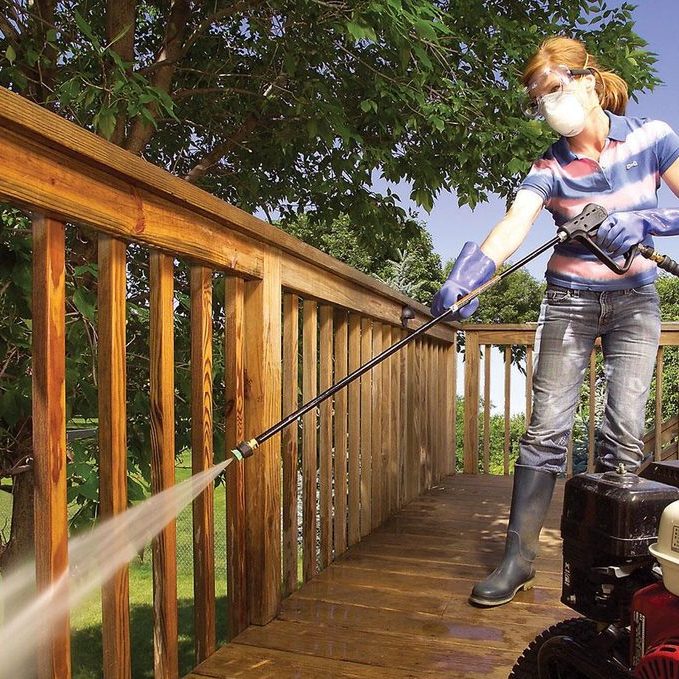
Vinyl Sidings
For houses with vinyl sidings, homeowners will notice that there’ll occasionally be a stain on there that is rather difficult to clean. Pressure washing vinyl slides can be disastrous as the water may enter your home through the cracks and crevices around the siding.
As a result, most homeowners ignore the stain altogether, which shouldn’t be the solution to a problem like this. Instead, you should use some vinyl siding cleaning solution paired with a soft-bristle cleaning brush to scrub the stain off.
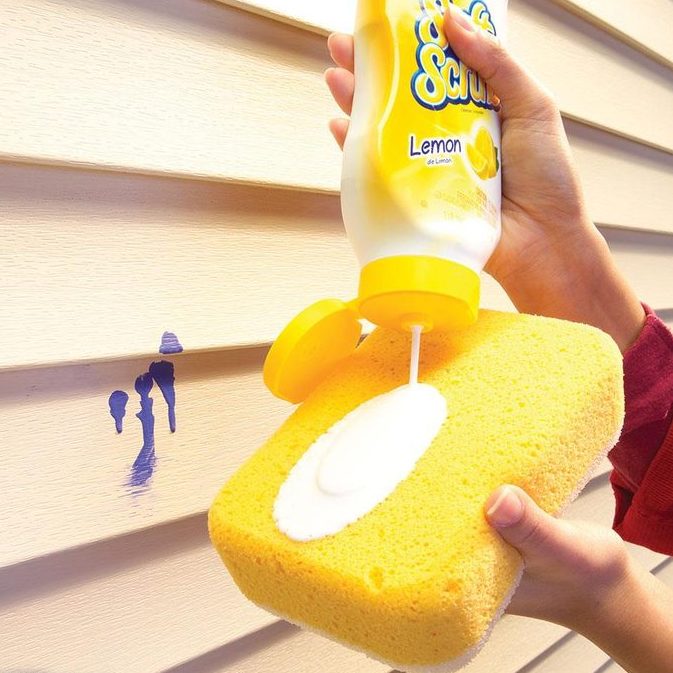
Window Weep Holes
Window weep holes are definitely not something that comes to mind when thinking of things to clean; they’re a small yet significant component to many sliding windows as well as vinyl replacement windows. Unclogged weep holes drain away rainwater from the window frames.
Luckily, there’s a relatively easy solution to clogged weep holes. Simply poke a wire hanger through the hole or spray it with compressed air. This will effortlessly get rid of all the dust and debris that is stuck in the hole.
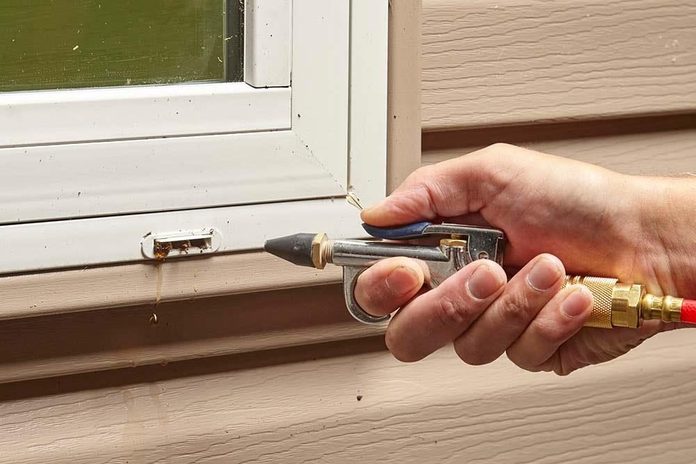
Soffit Vents
On the other hand, for houses with soffit vents, it is important that homeowners clean them periodically. Otherwise, dust and dirt might accumulate in the vents over time and block the air ventilation, which may cause the heat in the house to rise.
Homeowners can use air compressors to blow out the debris from the soffit vent. This will ensure that the air ventilation won’t be blocked and the temperature in the house won’t be affected. By cleaning your soffit vents, you’ll be able to save on air conditioning costs during the summer.
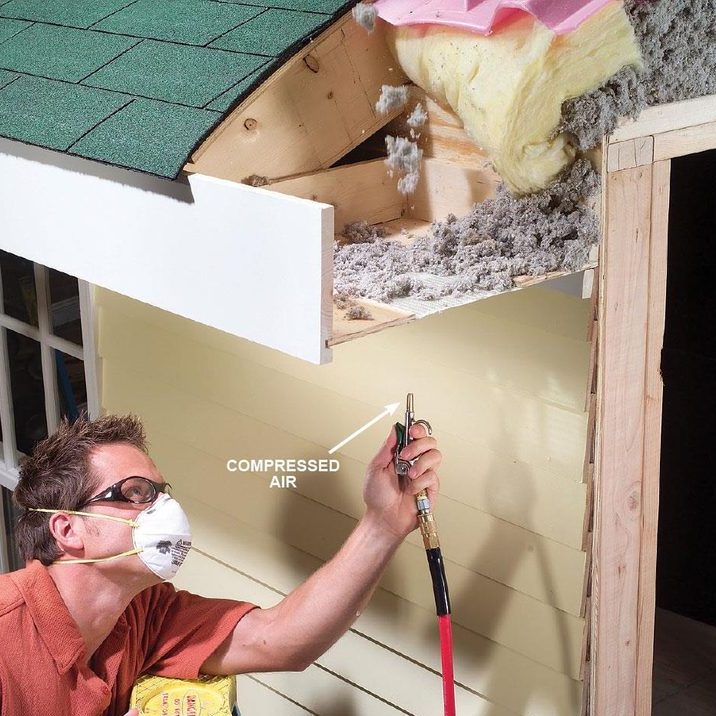
Air Conditioners
Did you know that the air that comes from an uncleaned air conditioner is actually much warmer than the air that’s coming from a clean air conditioner? Dust and dirt that accumulate in the air conditioner’s filter directly affect the air that comes out of it.
Items in the air conditioning unit in your house, as well as the unit outside your house, should be cleaned periodically. Neglecting the cleanliness of your air conditioning units would cause so much hassle and a hole in your wallet for repairs.
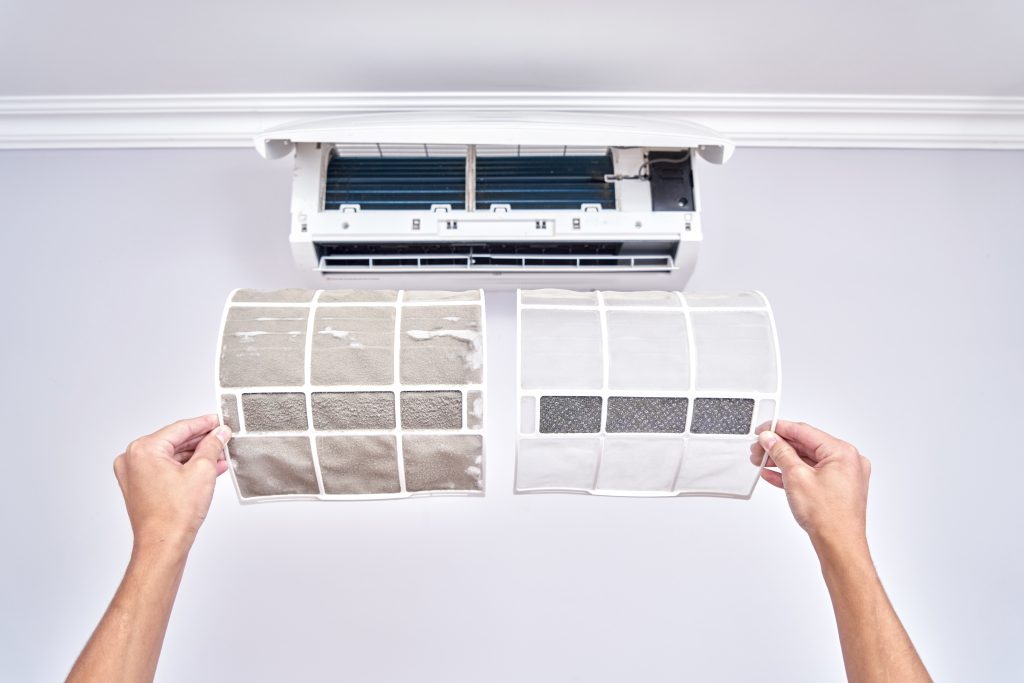
Light Switches
Think of the last time you cleaned your light switches. It’s either you can’t think of one because you never cleaned it, or it’s probably so far back in the past that you don’t remember doing it at all. Light switches are something that you’ll touch at least once a day and is full of bacteria.
You may not realize this, but light switches can easily accumulate germs and spread them. Therefore, to eliminate this ultimate germ collector, you should dampen a cloth with your favorite germ-ridding cleaner and wipe the light switches in your home regularly.
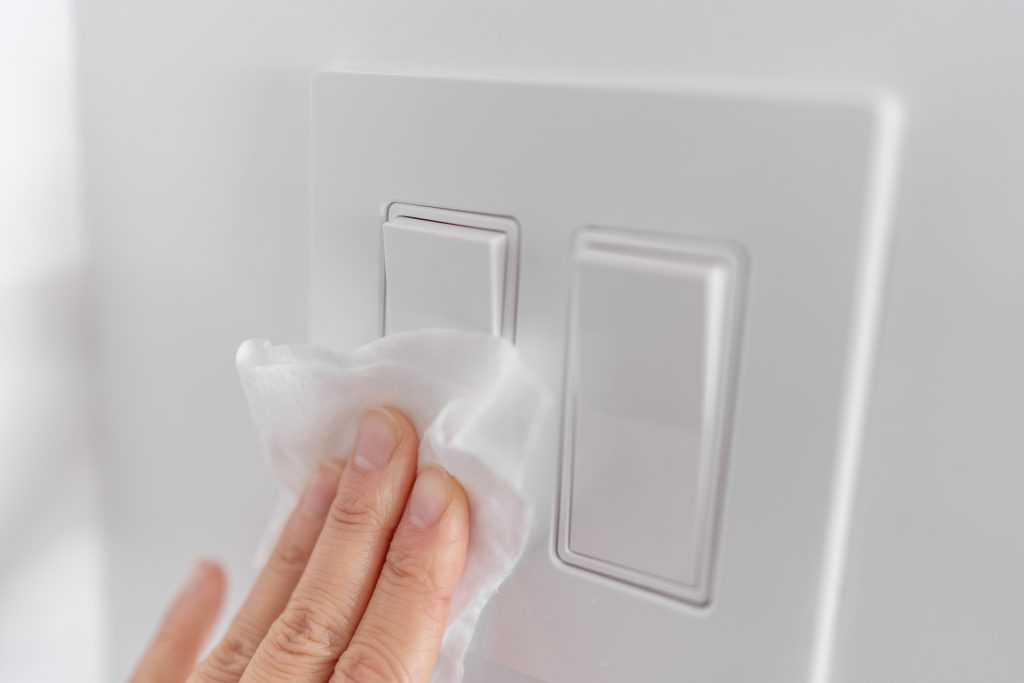
Doorknobs
Similar to light switches, doorknobs are also something you touch at least once a day. No matter how strong the soaps and sanitizers you use and how often you wash your hands throughout the day, there will be some germs that inevitably linger on your hands.
Alcohol-based cleaners are your best friends to eliminate any excess germs that remain on your doorknobs. Keep in mind to avoid getting the alcohol mixture onto any wooden doors or door trims as it may ruin the finished wooden materials.
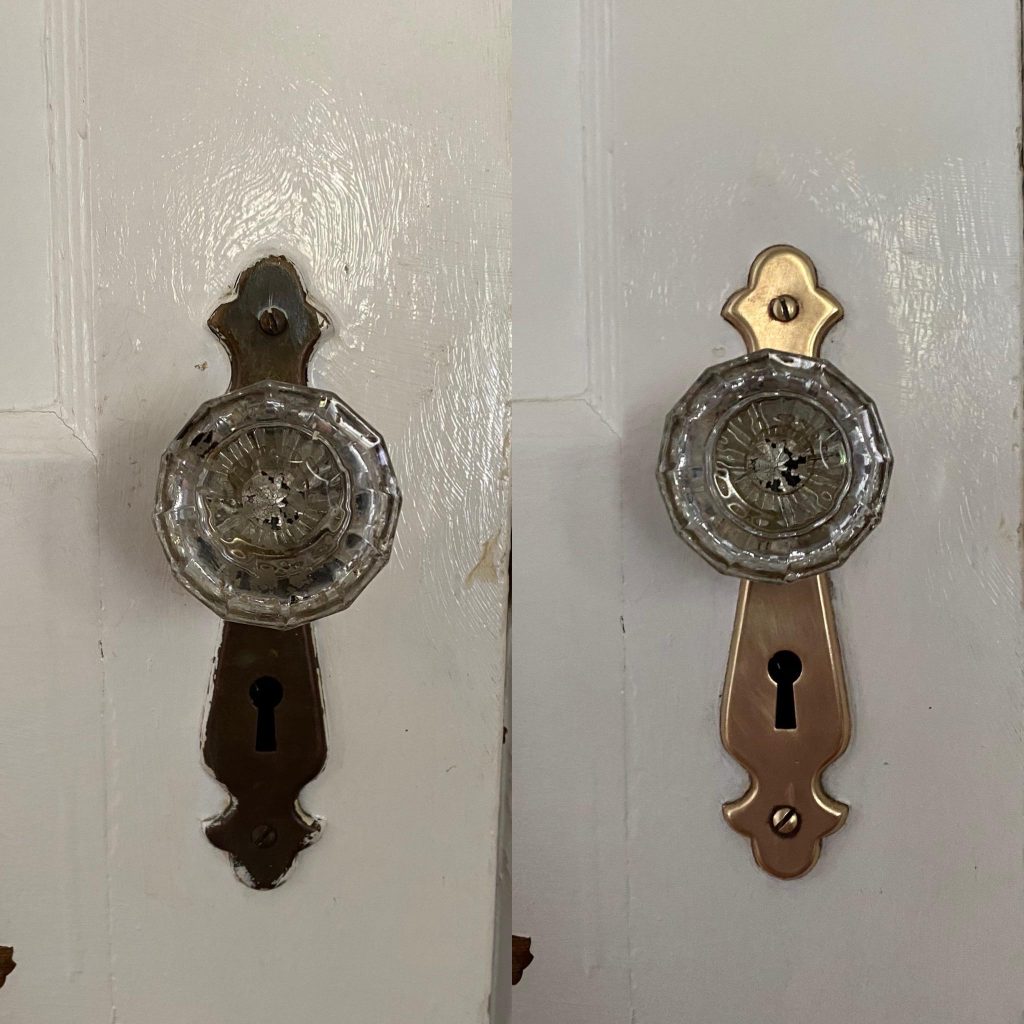
Phones
Although phones aren’t a particular area of your home, it probably is the most used item in most households. Your hands are actually germ transmitters. They’ve literally been everywhere, and all the germs that are on your hands would be transferred to your phone when you use them.
Therefore, not cleaning your phone regularly would cause the accumulation of germs on your phone, which causes hygiene issues. To prevent this from happening, have some alcohol wipes on hand and wipe your phone regularly, especially during the pandemic.

Tablets and Computers
Speaking of phones, other household items that are frequently used and collect germs include tablets and computers. This is especially the case during the pandemic when everyone is stuck working and studying at home, which highly increases the usage of these devices.
Again, prepare wipes, preferably alcoholic ones, so that you can regularly clean your tablets and computers to get rid of the germs that accumulate on them over time. This will effectively prevent lingering germs from transmitting to you or your family.
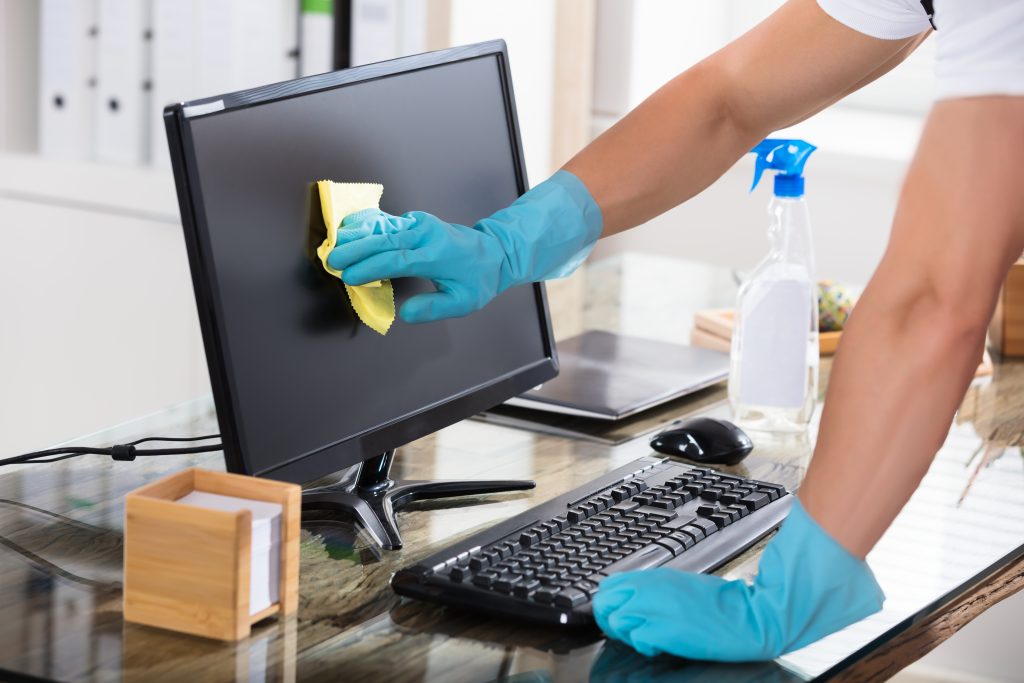
Computer Keyboards
If you’re using your computers and tablets often, your computer’s keyboard or other devices that you touch at the same time might be accumulating bacteria. Germs, food crumbs, hair, and dead skin cells often get stuck in between the gaps of each key.
It would be wise to clean your keyboards regularly to get rid of the germs and debris on them. Compressed air works best for getting the food crumbs out of the key gaps. Also, cotton swabs dipped in rubbing alcohol clean and disinfect the entire keyboard perfectly.
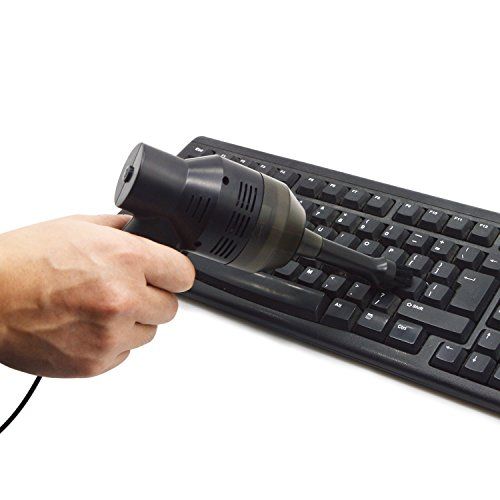
Remotes
Similar to electronics you use daily, remotes are one of the most touched items in your home, which makes it a dangerous germs transmitter. Unless it’s cleaned regularly, remotes may be full of germs and dead skin cells that can be really harmful.
Therefore, you should be wiping the remotes in your home with alcohol wipes or sprays with at least 70% alcohol once in a while, preferably once a week. When you’re done wiping them, be sure to dry the surface thoroughly.
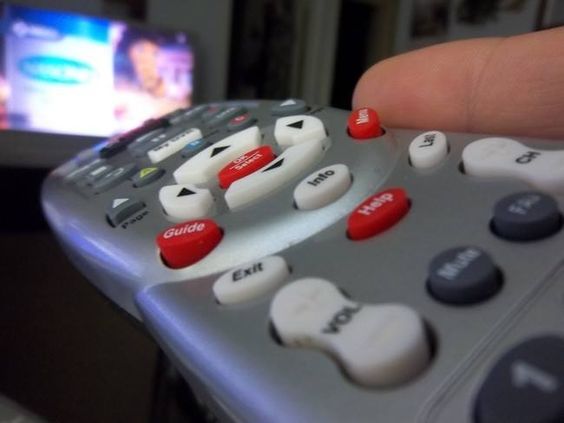
Makeup Sponges
Makeup sponges are something that is familiar to most ladies. Unfortunately, what is unfamiliar to them is the process of cleaning them. Not cleaning the sponges properly or frequently enough would cause germs and bacteria to grow on them, which might cause acne.
To prevent breakouts caused by dirty makeup sponges, simply prepare a small bowl and fill it with hot water. Then, add some face wash to the water and soak your sponges in the mixture. After soaking it for a while, scrub it clean of the remaining makeup products.
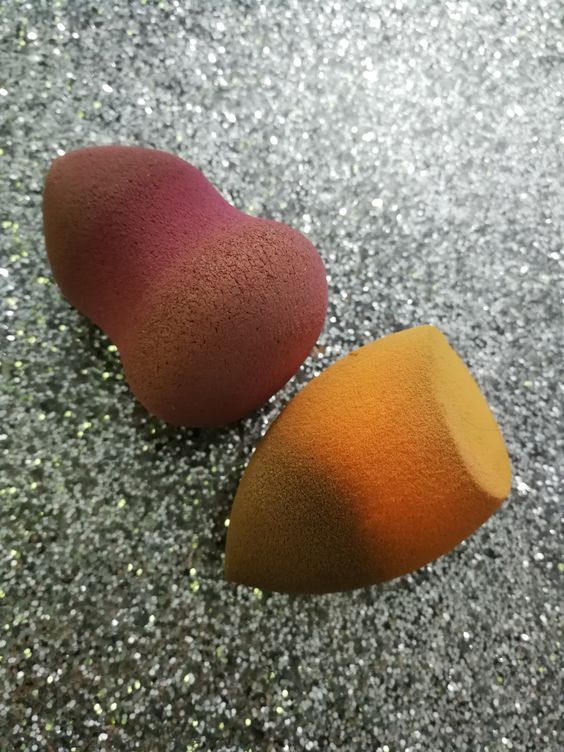
Pillows
Believe it or not, pillows also accumulate many germs. If you’re someone who suffers from acne, not cleaning your pillows frequently and thoroughly may be the reason why your acne isn’t healing. Thus, try to clean your pillows every four months or a little more regularly if you have very severe acne.
Simply throw them in the washing machine on a gentle cycle with hot water. The hot water can effectively remove dead skins cells as well as sweat. Upon drying the washed pillows, use clean tennis balls to help as it speeds up the process and keeps the pillow’s contents from clumping.
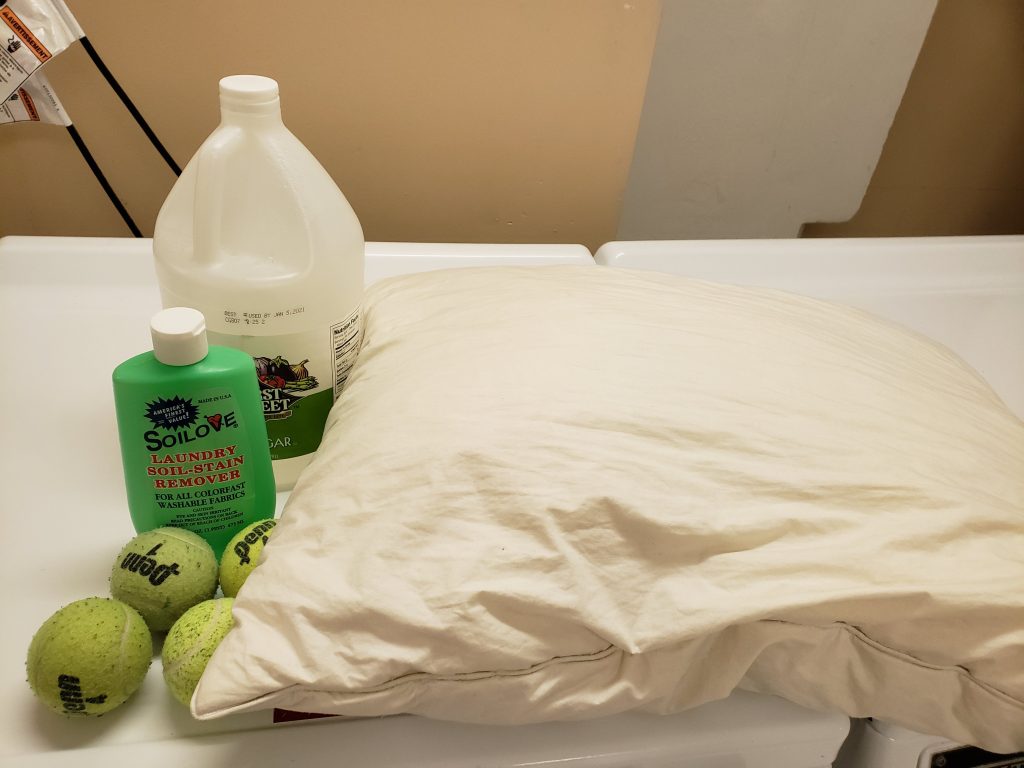
Mattresses
Of course, mattresses are next on our list. They may be covered with sheets and mattress covers, but that doesn’t prevent dirt and germs from getting through the covers and to the mattress itself. So, it’s probably best to clean your mattresses once in a while.
To clean your mattress, use a vacuum to clean the dust and dirt, as well as mattress cleaners to remove those stains. Be sure to do this periodically. In addition to that, you could air it out outdoors to remove any musty smells.
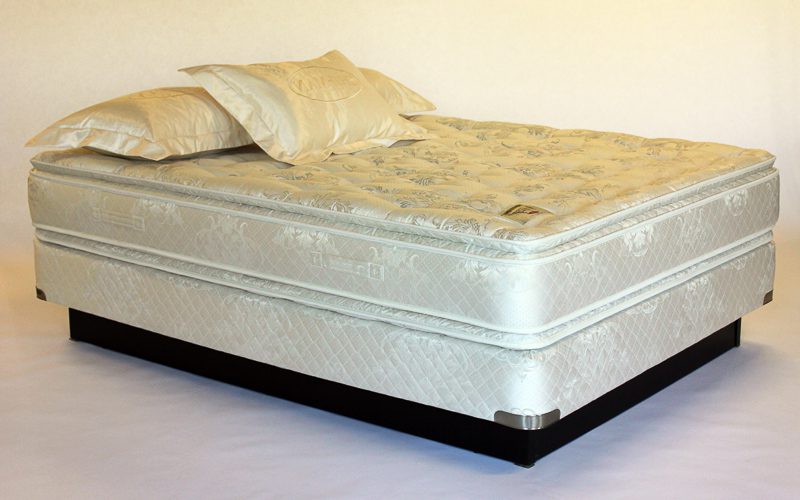
Hairbrushes
Think of the last time you deep cleaned your brushes and combs. It must have been a long time ago, right? Since it has not been cleaned for a long time, think of how much grease and hair products that have accumulated on the brush and how dirty it is.
So, to prevent yourself from using dirty brushes over and over, you should add baking soda to some warm water and soak your hairbrushes in the mixture overnight. This should be able to get rid of the grease and hair product residue that resides on your hairbrush.
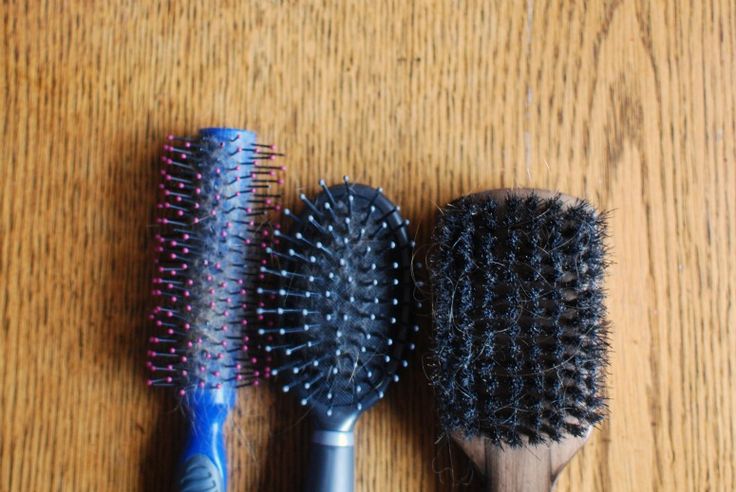
Closets
If you’re a Rachel Green, you’ll have numerous clothing items all piled up in your closet. Due to the huge amounts of clothes you have, you’ll probably be lazy to clean out your closet. As a result, dust would accumulate in your closet, which might occasionally cause body acne.
Therefore, it is absolutely crucial that you have a closet clean out regularly. During the clean-out, you should wipe down the walls and of your closet and give it a good vacuum. Other than that, you should also declutter. Rid yourself of those outdated clothes in exchange for extra closet space.

Bath Fan Grill
Water vapors on bathroom mirrors and walls are undoubtedly very annoying, and water vapors are caused by poor ventilation of bathroom exhaust fans. If the bath fan grill is clogged, it will affect the exhaust fan’s ability to get rid of excess moisture, humidity, odors, and other pollutants in the bathroom air.
Thus, it would be wise to unclog and clean your bath fan grill from dirt and debris that has accumulated over the years. To clean this, simply remove the bath fan grill and use a damp cloth to wipe it clean. You should do this periodically.
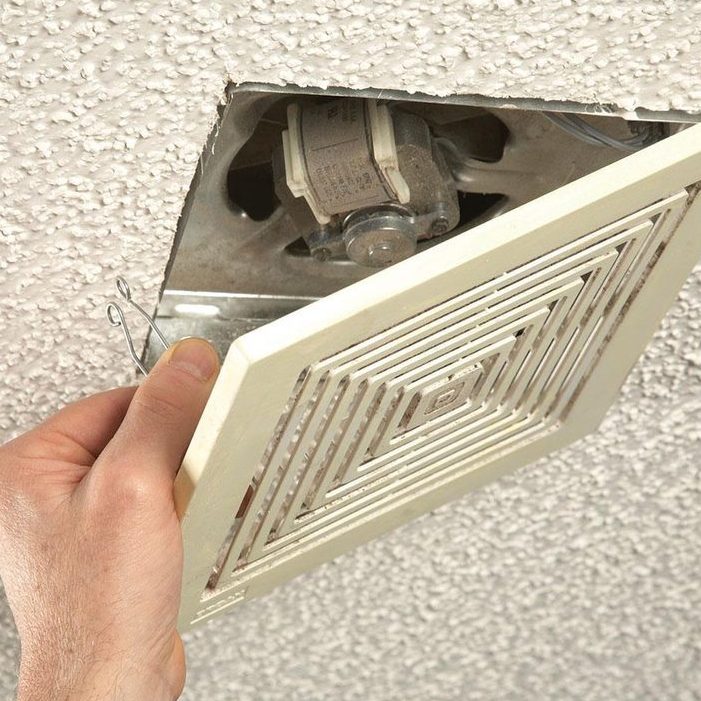
Toothbrush Holders
From a study, the public health organization, NSF International, found that 64% of toothbrush holders contain mold and yeast, which is 37% more than the mold and yeast found on toilet seats. And these are the things that hold our toothbrushes, something we put in our mouths.
If you’re totally disgusted by this fact like we are, do throw your toothbrush holders in your dishwasher to get rid of the icky residue and germs that are feeding on it. If it’s an electric toothbrush, clean the base with some alcohol and water. This should be done either weekly or biweekly.
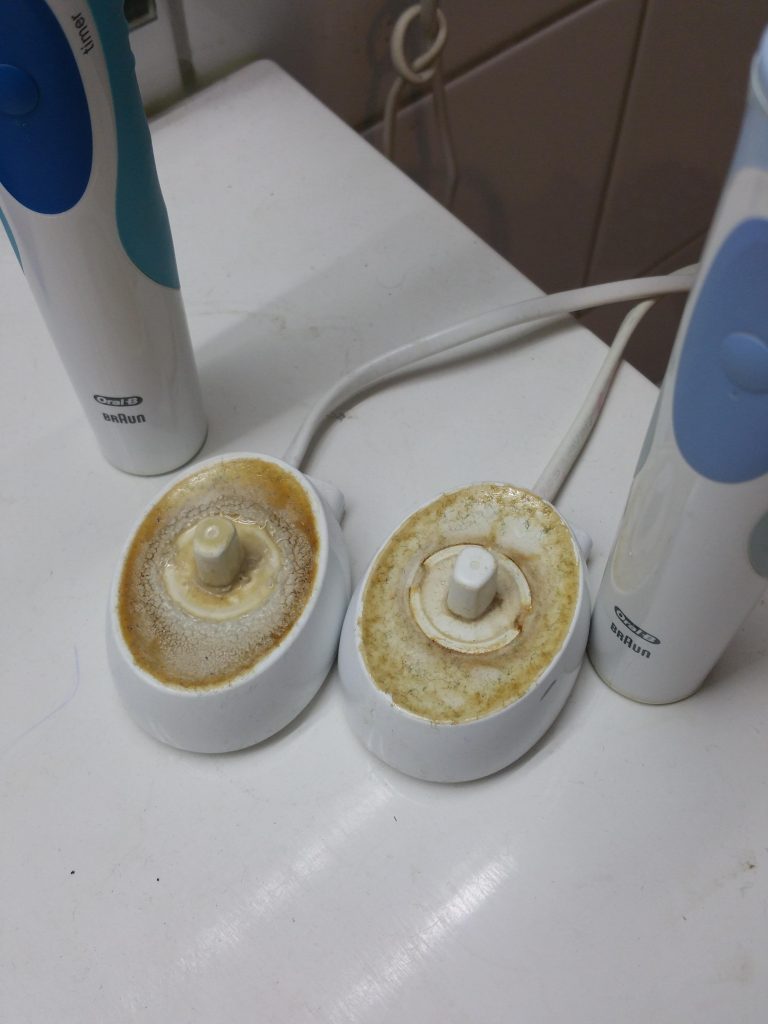
Toilet Brushes
Toilet brushes are handy in dealing with nasty toilet business, but if these aren’t properly cleaned, the residue will be unthinkably disgusting, not to mention that it will develop an unpleasant odor. Therefore, these should be adequately cleaned or replaced frequently.
We’ve found that Pine-Sol works really well in cleaning toilet brushes as well as deodorizing them. Simply drop one drop of it into the bottom of the brush container, and it’ll work wonders for you. However, you should still replace old toilet brushes with new ones after some time.
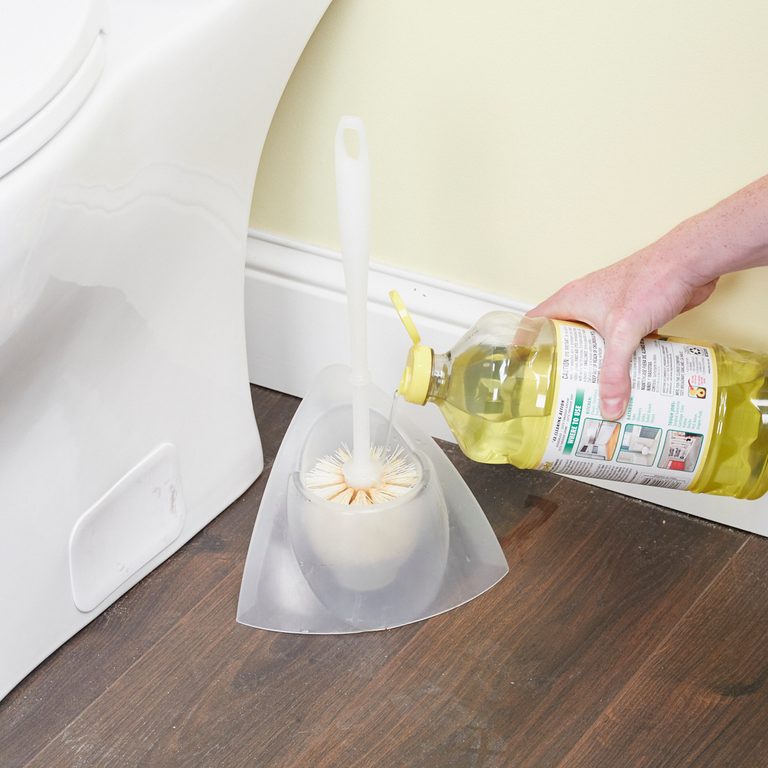
Shower Caddies
Shower caddies are best to store your shower necessities. However, they’re bound to get dirty from the shampoo drips and leaks. These drips and leaks will, in time, turn into stubborn soap scum and mold, which are hard to get rid of if not cleaned immediately.
So, cleaning shower caddies frequently should become a habit of yours. Simply rinse it down during your shower. To get rid of the soap scum and mold, soak the entire caddy in hot water with a little bleach. Wait for it to dry completely before storing your shampoos again.
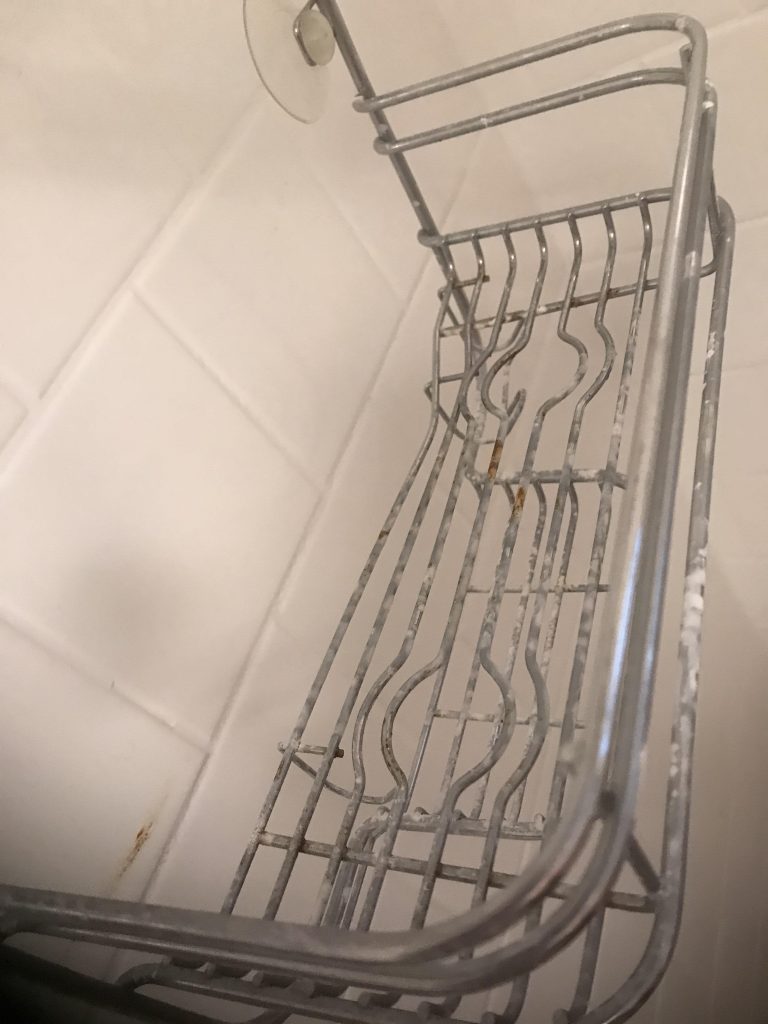
Shower Curtains
Shower curtains are constantly situated in a moist environment which makes them prone to mold and mildew, especially if it’s not cleaned from time to time. When mold and mildew develop, you’ll have to change the entire shower curtain as it would be difficult to clean.
To avoid this, be sure to throw it in the washer every once in a while. In addition to that, you should also wipe the shower curtain with a cloth that is dampened in a mixture of water, baking soda, and hydrogen peroxide at least every two weeks.
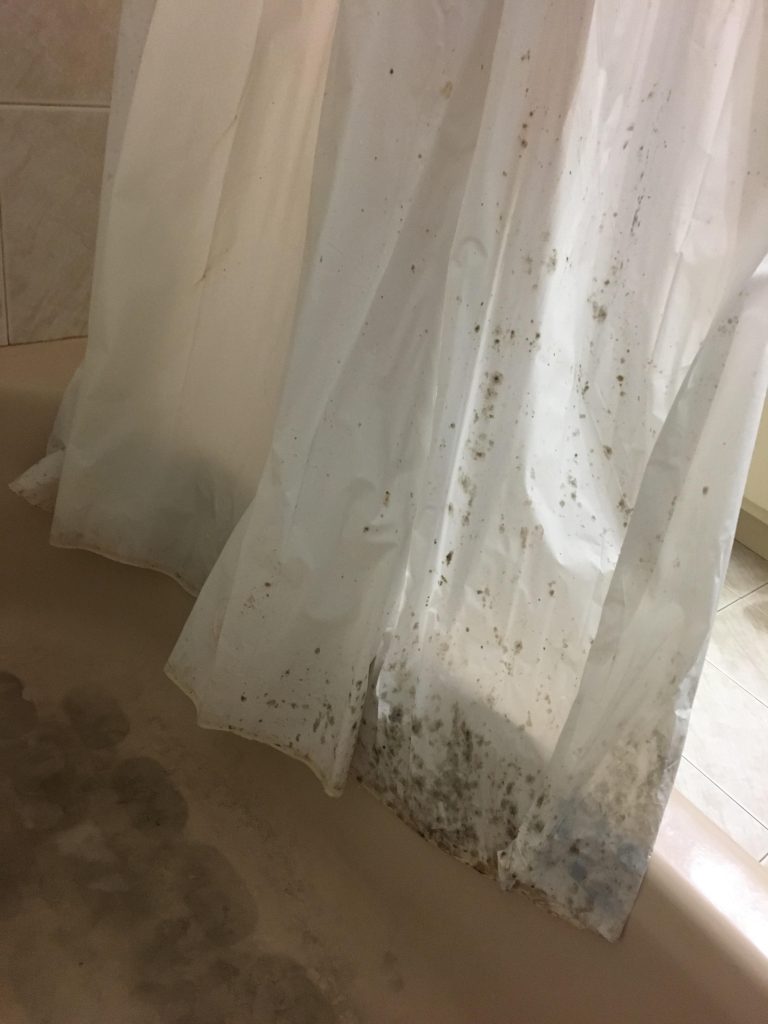
Faucet Aerators
Faucet aerators are minor components of a faucet, but a significant one at that. They have the ability to affect the water flow that’s coming through the particular faucet. If the water flow from your faucet becomes slow or uneven, it may be a sign for you to clean it.
Clogged aerators often cause uneven or slow water flow. Clean them by first unscrewing the aerator from the faucet. Then, scrub the debris that’s caught in the aerators with an old toothbrush and rinse thoroughly. If the faucet neck is clogged, use your finger to ream it out.
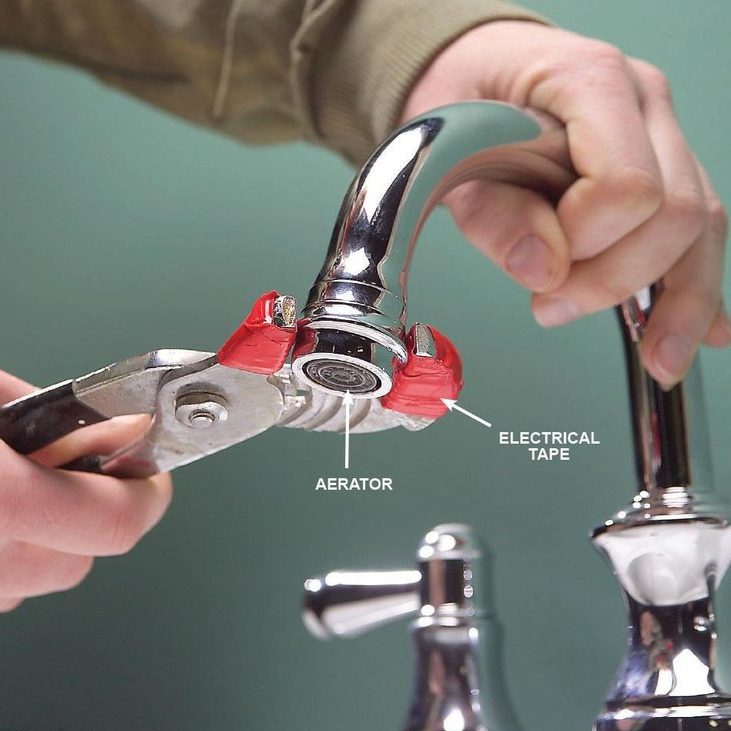
Refrigerators
Refrigerators hold all the food and drinks you’ll eat. Thus, the cleanliness of this particular kitchen appliance is especially important. Not cleaning it would affect its ability to keep the food fresh and bacteria-free. Food that isn’t fresh causes diarrhea and stomachaches.
Firstly, you should declutter your refrigerator. Then, detach all the refrigerator compartments and sink them in soapy water. While the compartments are soaking, wipe the interior of the fridge with soap and water. Dry the interior along with the compartments and reassemble them in the fridge.
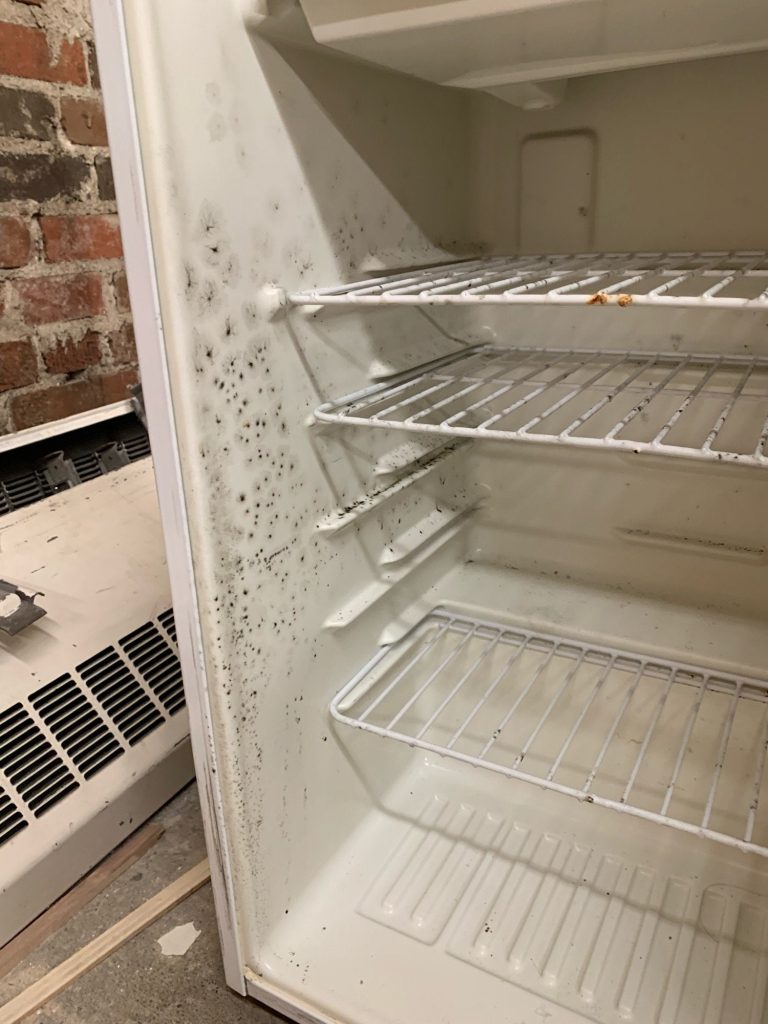
Refrigerator Coils
We bet that you’ve never cleaned the back of your refrigerator or that cleaning it is a task that’s long overdue. If this is the case, you might want to take a look at the back of your refrigerator. There’s must be a shocking amount of dust on there.
Cleaning the back of your refrigerator as well as the refrigerator’s coils would effectively reduce your electricity bills while extending its life. Simply use a damp cloth and clean behind your refrigerator. You should do this every six months.
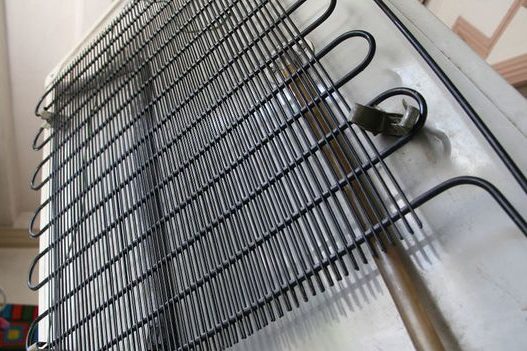
Under Refrigerators
The space under your refrigerators is also extremely dirty because, let’s be honest, not many of us would go through the hassle of cleaning that space. As a result, that particular space would collect pet hair, dust, food crumbs, and other small trinkets.
Turn a drain cleaning zip tool into a cleaning tool for the area under your refrigerator to clean this space quickly. This tool won’t leave scratches on your floor and can reach much further than normal vacuum attachments can.
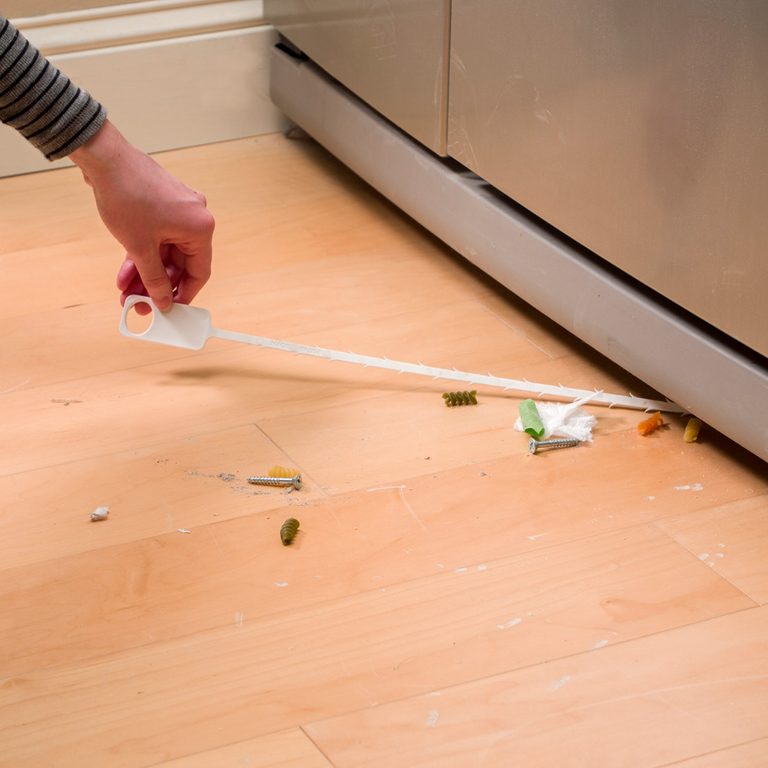
Ovens
The cleanliness of ovens is another thing homeowners need to take heed of. Unless the spills and remnants of old food and liquid inside the ovens are taken care of immediately, smoke and unpleasant odors will develop that are rather unbearable and difficult to get rid of.
Therefore, it is important that you put your oven through a regular cleaning cycle. Additionally, detach the trays inside the ovens and wash them after each use. For the undetachable parts of the oven, use oven cleaners to wipe them clean.
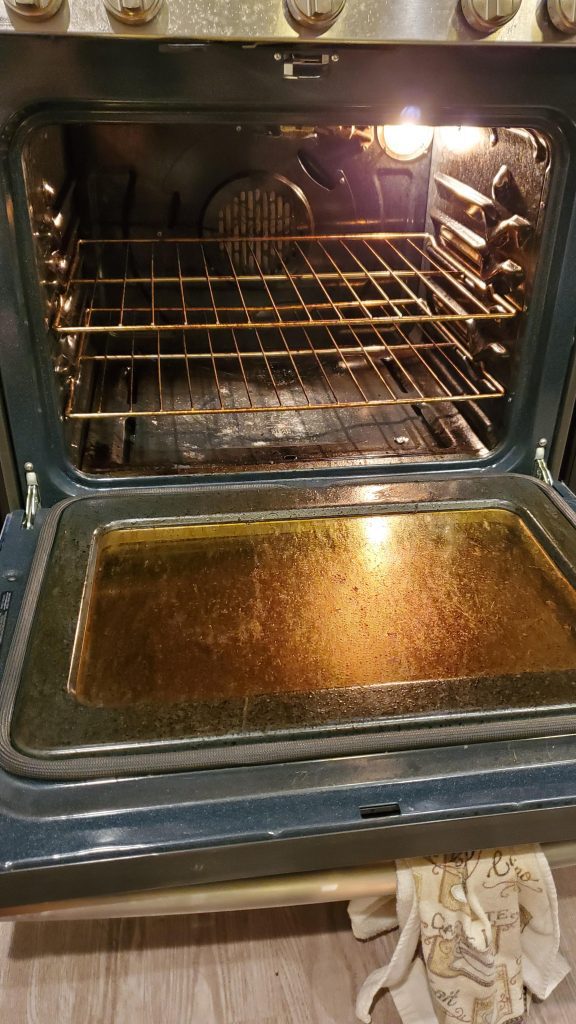
Coffee Reservoir
Coffee machines are essentials in the homes of coffee lovers, but how often do you clean that coffee machine? We’re not talking about only the coffee pot here, but rather the whole machine. Once again, NSF data shows that coffee reservoirs can be dirtier than toilet seats and handles.
Once in a while, coffee reservoirs should undergo deep cleaning; this job can be done perfectly with the help of water and vinegar. Simply fill the reservoir with equal parts of water and vinegar and turn on the machine. After that, brew a pot of plain water to get rid of any remaining vinegar.
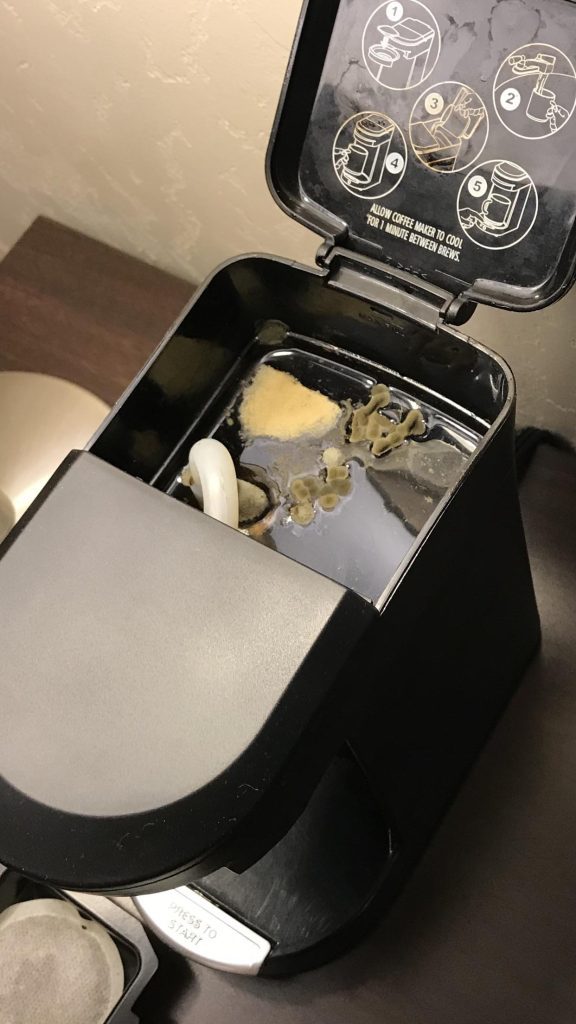
Kitchen Exhaust Fan Filter
Kitchen exhaust fans help remove airborne grease, combustion products, fumes, smoke, heat, and steam from the air through air evacuation and filtration. After some time of using the exhaust fan, its filter may be clogged with grease, dirt, and other debris.
Thus, it’s important that homeowners clean the exhaust fan’s filter from time to time. This can be done by throwing the filter on a delicate cycle in a dishwasher. However, if the dirt and debris on it are too stubborn, you’ll need to soak the filter in some water-based degreaser.
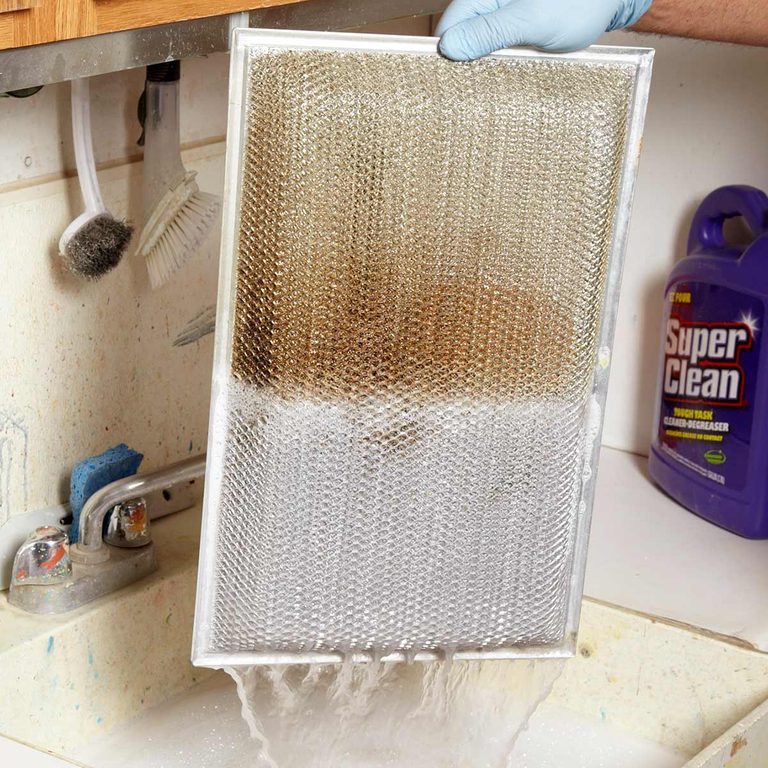
Dryers
One common misconception that many people have is that dryers are used to dry clean clothes so they can’t possibly get dirty and require cleaning. This, unfortunately, is wrong. Lint builds up inside dryer cabinets and can eventually cause fires.
Built-up lint actually causes more than 15,000 fires each year. Therefore, it is especially critical that the lint trap is cleaned before and after every use. Moreover, the dryer vent should also be cleaned at least once a year and the dryer’s interior once a week.
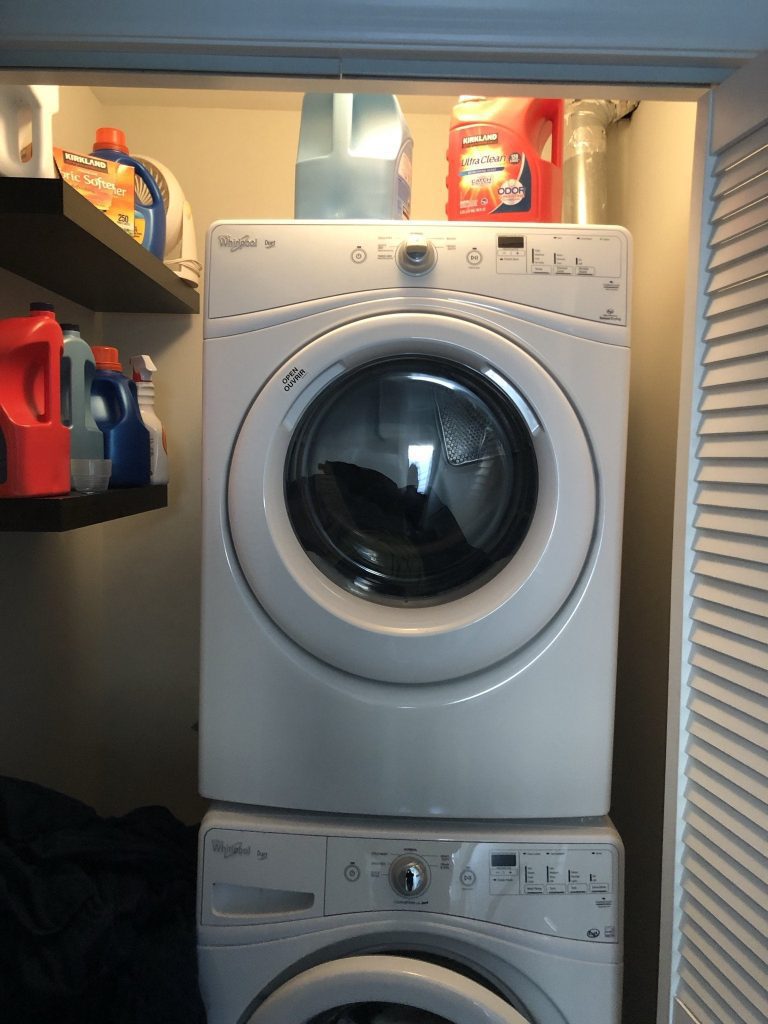
Dryer Vents
Other than the dryer itself, the dryer’s vent should also be cleaned regularly. Clogged dryer vents will affect the dryer’s operation, not to mention the chance of setting off a fire in your home. Therefore, it is absolutely crucial that dryer vents are cleaned and unclogged.
With the help of wet or dry vacuums, suck the dirt and debris from the ducts. Alternatively, clean them out with a cleaning kit. If you’re just picking out dryer ducts, do opt for smooth metal ducts. These last much longer and stay cleaner for longer, too.
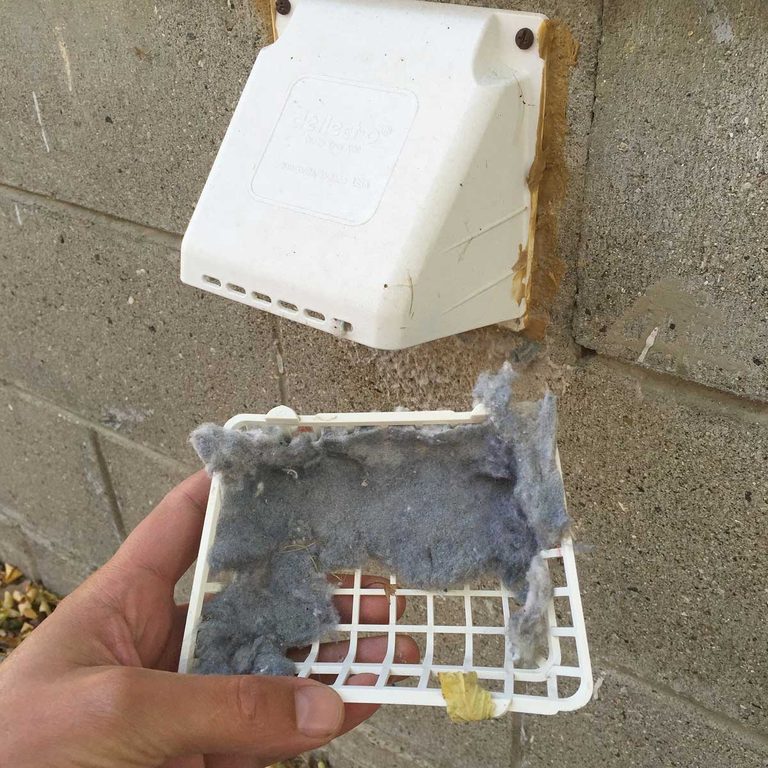
Washers
Washers turn dirty, filthy clothes into clean, fresh clothes. Try and think about where all the dirt and filth from the dirty clothes go to. They’re probably still inside the washing machine, so it may be an unwise choice not cleaning the machine itself.
To ensure the cleanliness of your washing machine, we recommend that you run an empty load with merely hot water along with bleach once a month. By doing this, you’ll be able to prevent unpleasant smells and gross molds from developing in the washing machine.
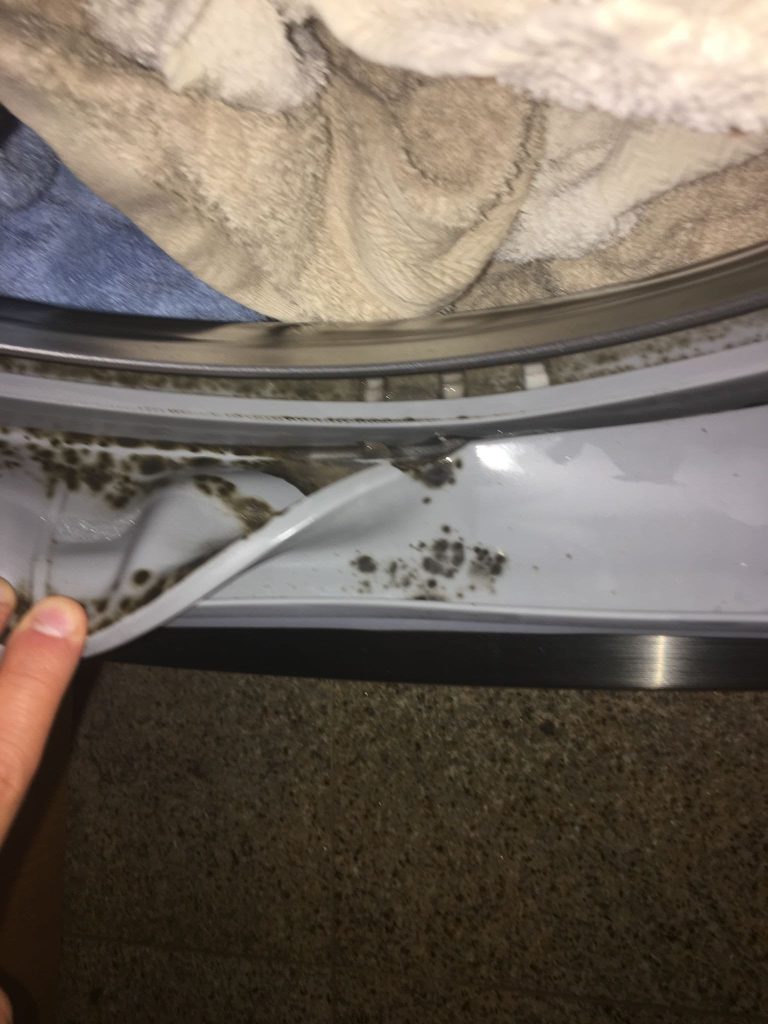
Dishwashers
Similar to dryers, most homeowners think dishwashers are self-cleaning when they are, in fact, not. Yes, they do a great job cleaning your dishes, but the dirty bits of food and grime actually get stuck in the nooks and crannies of your dishwasher.
If the dirty bits aren’t cleaned, the dishwasher’s ability to clean dishes would eventually be affected; the dirty bits stuck in the dishwasher may even produce an unpleasant odor that is intolerable. Therefore, you should clean your dishwasher periodically. You can do this by running an empty dishwasher with only a cup of white vinegar on the top shelf.

Vacuum Filters
Vacuum cleaners have a dirt canister that can be removed to clean out the trash inside. However, this is the only thing most vacuum owners clean. They’ve neglected the vacuum’s filter, which can get pretty dirty from all the dirt and dust it collects over time.
To clean a vacuum filter, take it outside and clean the filter with a shop vacuum. You should be gentle with cleaning a vacuum filter as some of them have a special coating that is rather fragile, and if you damage that, you’ll need to purchase a new filter.
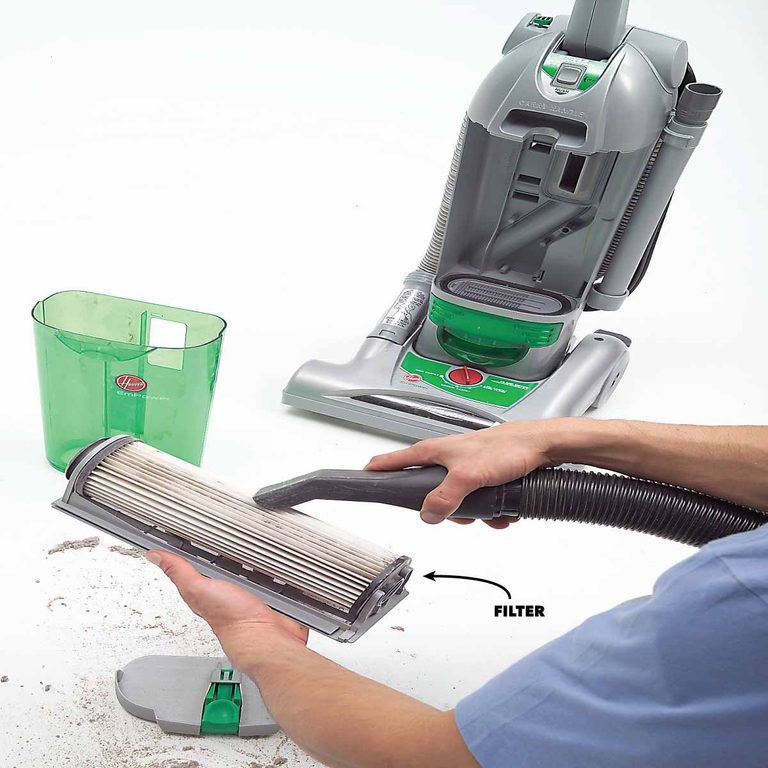
Garbage Disposal
In contrast to dishwashers and dryers, many homeowners think that since garbage disposals are already dirty, there’s no point in cleaning them just for them to get dirty again. Unfortunately, not cleaning garbage disposals for a long period of time may cause a funky smell in your sink.
Therefore, homeowners should make a habit of cleaning under the splash guard with a sponge or toothbrush at least once a week. Be sure to run hot water down the disposal, too. Additionally, the remaining waste that is stuck in the splash guard should be removed after each use.

Trash Can
Speaking of garbage disposals, your trash can requires some cleaning attention, too. Yes, we know that trash cans are lined with trash bags, but it doesn’t mean that the germs and bacteria wouldn’t be transferred to your garbage bin in the event of a trash bag leak.
As a solution, homeowners should spray the insides of their trash cans with some disinfectant every time they take the trash out. In addition to that, trash cans should also be washed thoroughly with bleach and hot water at least once a month.
